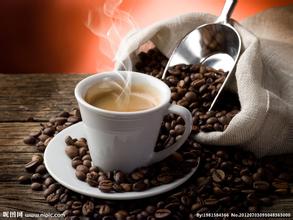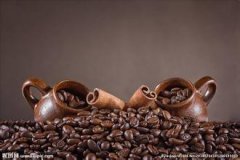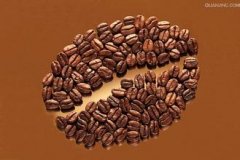Introduction to the history and culture of Salvadoran coffee origin

Central American countries generally distinguish quality grades by altitude, such as Costa Rica, Guatemala, Mexico, Honduras and other countries. Similarly, El Salvador is graded by altitude. At high altitudes, due to the cold climate and slow coffee growth, the density of raw beans will be higher, the hardness will be stronger, the unique acidity of Arabica will be better, and of course the better the quality will be. Therefore, the higher the altitude of coffee growth, the better the flavor, on the contrary, the lower the altitude, the higher the temperature, the faster the growth rate, the lower density, the lower hardness and the worse quality of raw beans.
So much for the introduction of Savaldo, so let's go back to the original topic: what surprised me?
The first El Salvador to drink is washed beans, medium-shallow baked, warm and gentle, smooth entrance, sour and sweet mellow thickness are very regular, do not have too prominent flavor characteristics, so do not leave too much impression. But the flavor of tanning El Salvador becomes very recognizable and amazing. After grinding, the dry aroma gives off a pleasant tropical fruit aroma, followed by steaming, extraction, and until the end, a steady stream of jackfruit aroma. As soon as the extraction is over, I can't wait to take a sip. Strawberries, brown sugar, faint spices, and then two more sips, the creamy taste can be described with an advertising phrase-"silky at the moment." . This country is a small coffee-producing country, which is very suitable for honey treatment and solarization. On the whole, honey treatment and sun treatment have also given a new soul to El Salvador. The long-lasting taste is rich, sweet and sour, chocolate, unique tropical fruit notes, let people remember deeply.
The ancient city, built on a peninsula extending into the Atlantic Ocean, occupies the end of a mountainous island and is divided into cities by a steep slope.
Scenery of El Salvador
Scenery of El Salvador
And the cities below (upper and lower cities) can be reached by elevator or climb on foot. The city wall preserved along the steep slope is arched. The upper city overlooks the activities of the people in the city below. The uptown has baroque buildings and many small squares, public buildings, dwellings and gardens. They are simple and elegant and keep better than the lower city. The streets here are numerous and narrow, with a variety of patterns on the road, which are paved with black and white stones. Downtown is the Modrow market near the port, where houses and people's activities revolve around the port and commerce, where the slave trade used to be very popular. it is now an extraordinarily bustling handicraft market, El Salvador has a large number of 16th-century buildings and religious buildings, many of which are decorated with carvings from the 17th and 18th centuries There are many stripes made of colored mud, reflecting the characteristics of the colonial period. Its overall characteristics are described through a forest of monuments and consistent ideas. All this shows that El Salvador is a famous example of a city with a structure suitable for colonies.
El Salvador's coffee accounts for 40% of the country's exports, and it is usually picked in November, December and January-March of the following year. The export of raw beans lasts almost all year round. Coffee is produced in seven of the country's 14 provinces, with the largest number in the northwestern provinces of chalatenango and santa ana. El Salvador produces 100% Arabica coffee, 68% of which is bourbon, which usually grows at an altitude of 1062 Mel 1972 meters. On the other hand, El Salvador has a unique mountain, river and plateau, which provides a suitable environment for the growth of bourbon coffee. At the same time, El Salvador's suitable temperature, abundant precipitation and fertile soil are also indispensable natural conditions for breeding high-quality coffee beans. Salvadoran coffee, like other typical island beans, is well-balanced, soft and good in texture.
Important Notice :
前街咖啡 FrontStreet Coffee has moved to new addredd:
FrontStreet Coffee Address: 315,Donghua East Road,GuangZhou
Tel:020 38364473
- Prev

A brief introduction to the description of the flavor, taste and aroma characteristics of El Salvador boutique coffee
The government finally realized the great role of coffee in the national economy, such as solving employment, earning foreign exchange and developing agricultural production, so it privatized some coffee export industries in 1990, hoping to increase the income rate of coffee in the export market. Today, this coffee accounts for 40% of the country's exports. The best quality coffee is exported from January to March, and 35% of the extra hard beans are exported.
- Next

A brief introduction to the treatment method of grinding degree and baking degree of fragrant Salvadoran coffee
Salvadoran coffee ranks side by side with Mexico and Guatemala as the producers of Asa and Merdo, and is fighting for the top one or two places in China and the United States with other countries. The highlands of origin are large coffee beans of all sizes, which are fragrant and mild in taste. Like Guatemala and Costa Rica, coffee in El Salvador is graded according to altitude, and the higher the altitude, the better the coffee
Related
- Detailed explanation of Jadeite planting Land in Panamanian Jadeite Manor introduction to the grading system of Jadeite competitive bidding, Red bid, Green bid and Rose Summer
- Story of Coffee planting in Brenka region of Costa Rica Stonehenge Manor anaerobic heavy honey treatment of flavor mouth
- What's on the barrel of Blue Mountain Coffee beans?
- Can American coffee also pull flowers? How to use hot American style to pull out a good-looking pattern?
- Can you make a cold extract with coffee beans? What is the right proportion for cold-extracted coffee formula?
- Indonesian PWN Gold Mandrine Coffee Origin Features Flavor How to Chong? Mandolin coffee is American.
- A brief introduction to the flavor characteristics of Brazilian yellow bourbon coffee beans
- What is the effect of different water quality on the flavor of cold-extracted coffee? What kind of water is best for brewing coffee?
- Why do you think of Rose Summer whenever you mention Panamanian coffee?
- Introduction to the characteristics of authentic blue mountain coffee bean producing areas? What is the CIB Coffee Authority in Jamaica?

